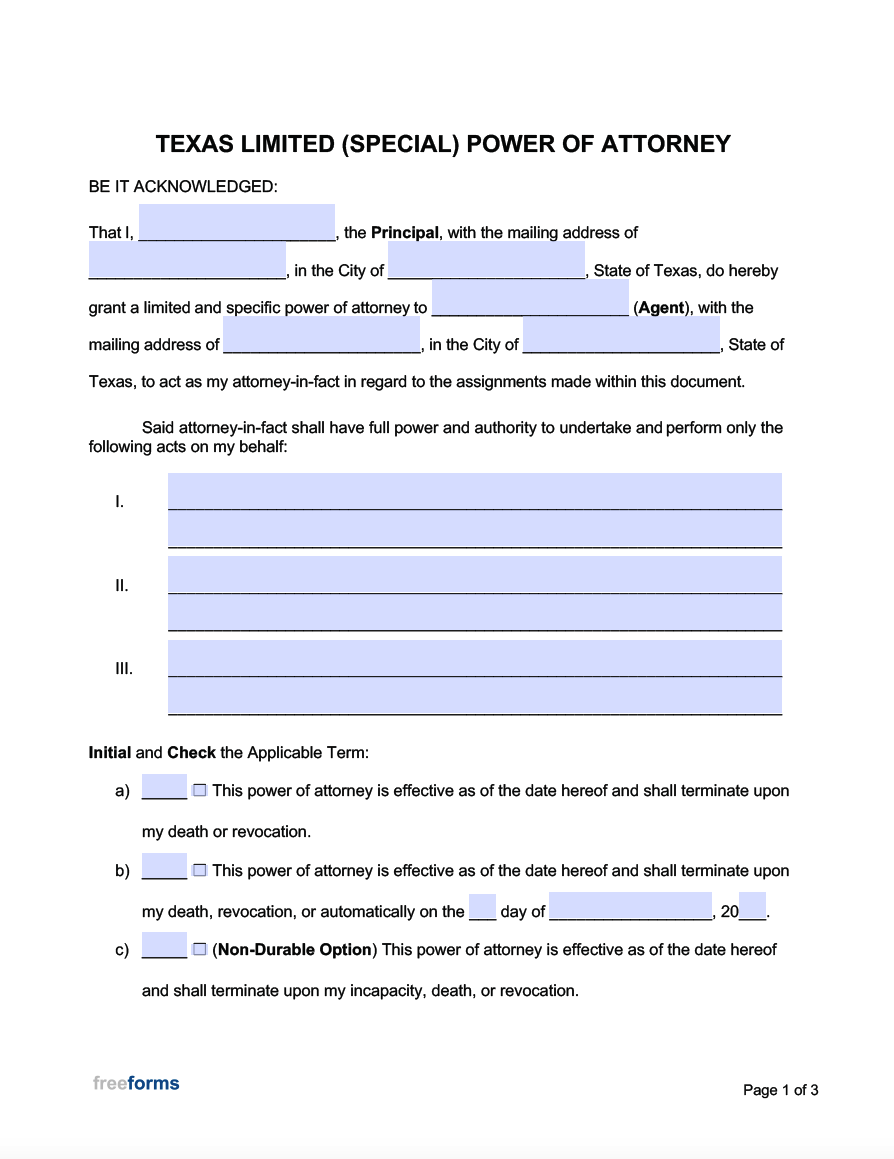What is a Power of Attorney?
A Power of Attorney (POA) is a legal document that grants someone else the authority to act on your behalf. This person is known as your “agent” or “attorney-in-fact.” They can make decisions about your finances, property, or even your healthcare.
When Do You Need a Power of Attorney?
There are several situations where a POA can be beneficial:
Illness or Disability: If you become ill or disabled, a POA can ensure that your affairs are taken care of.

Image Source: freeforms.com
Types of Power of Attorney
There are different types of POAs, each with its own specific powers:
General Power of Attorney
This is the most common type of POA. It gives your agent broad authority to act on your behalf, including managing your finances, property, and legal affairs.
Specific Power of Attorney
This type of POA grants your agent limited authority to perform specific tasks, such as selling a property or making healthcare decisions.
Durable Power of Attorney
A durable POA remains in effect even if you become incapacitated. This is important because it ensures that your agent can continue to act on your behalf if you’re unable to do so.
Healthcare Power of Attorney
This type of POA gives your agent the authority to make healthcare decisions on your behalf, such as choosing medical treatments or deciding whether to be resuscitated.
Creating a Power of Attorney Form
To create a Power of Attorney form, you can:
Use a Template: Many online resources and legal forms websites offer templates that you can fill out and customize.
Important Considerations
When creating a Power of Attorney, it’s important to:
Choose Your Agent Carefully: Select someone you trust and who is reliable.
Conclusion
A Power of Attorney is a valuable tool that can help you protect your interests and ensure that your affairs are taken care of, even if you’re unable to do so yourself. By understanding the different types of POAs and taking the time to create a document that meets your specific needs, you can have peace of mind knowing that your affairs are in good hands.
FAQs
1. Can I revoke a Power of Attorney? Yes, you can revoke a POA at any time, even if it’s a durable POA.
2. What if my agent dies or becomes incapacitated? You can name a successor agent in your POA to take over if your original agent is unable to act.
3. Do I need to notarize a Power of Attorney? The requirements for notarization vary by state. It’s always best to consult with an attorney to determine the specific requirements in your area.
4. Can I give my agent the power to make gifts on my behalf? Yes, you can grant your agent the power to make gifts, but you should be clear about the amount and purpose of the gifts.
5. Can I create a Power of Attorney for my minor child? Yes, you can appoint a guardian for your minor child using a Power of Attorney. However, the specific requirements for this vary by state.
Power Of Attorney Form